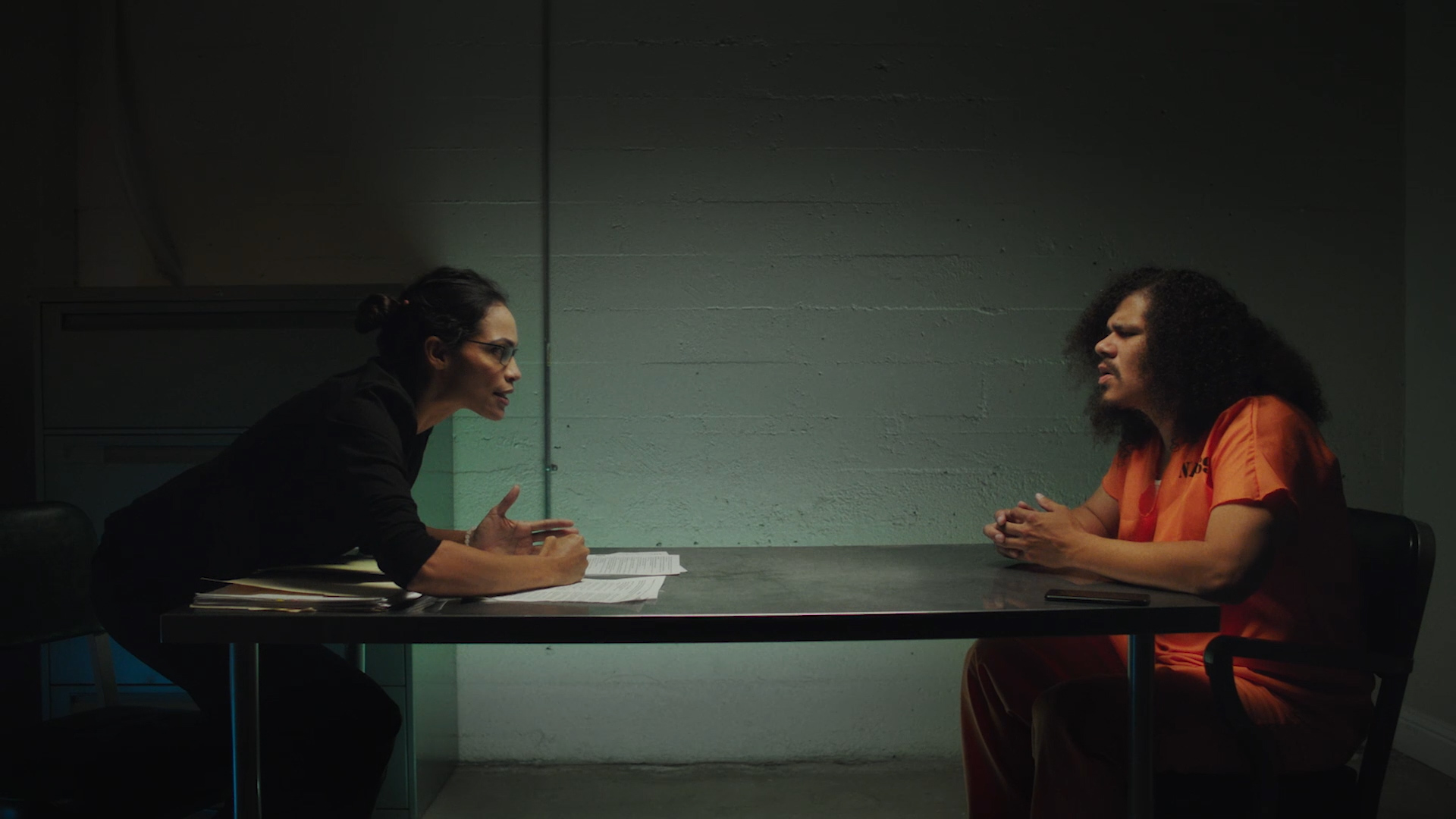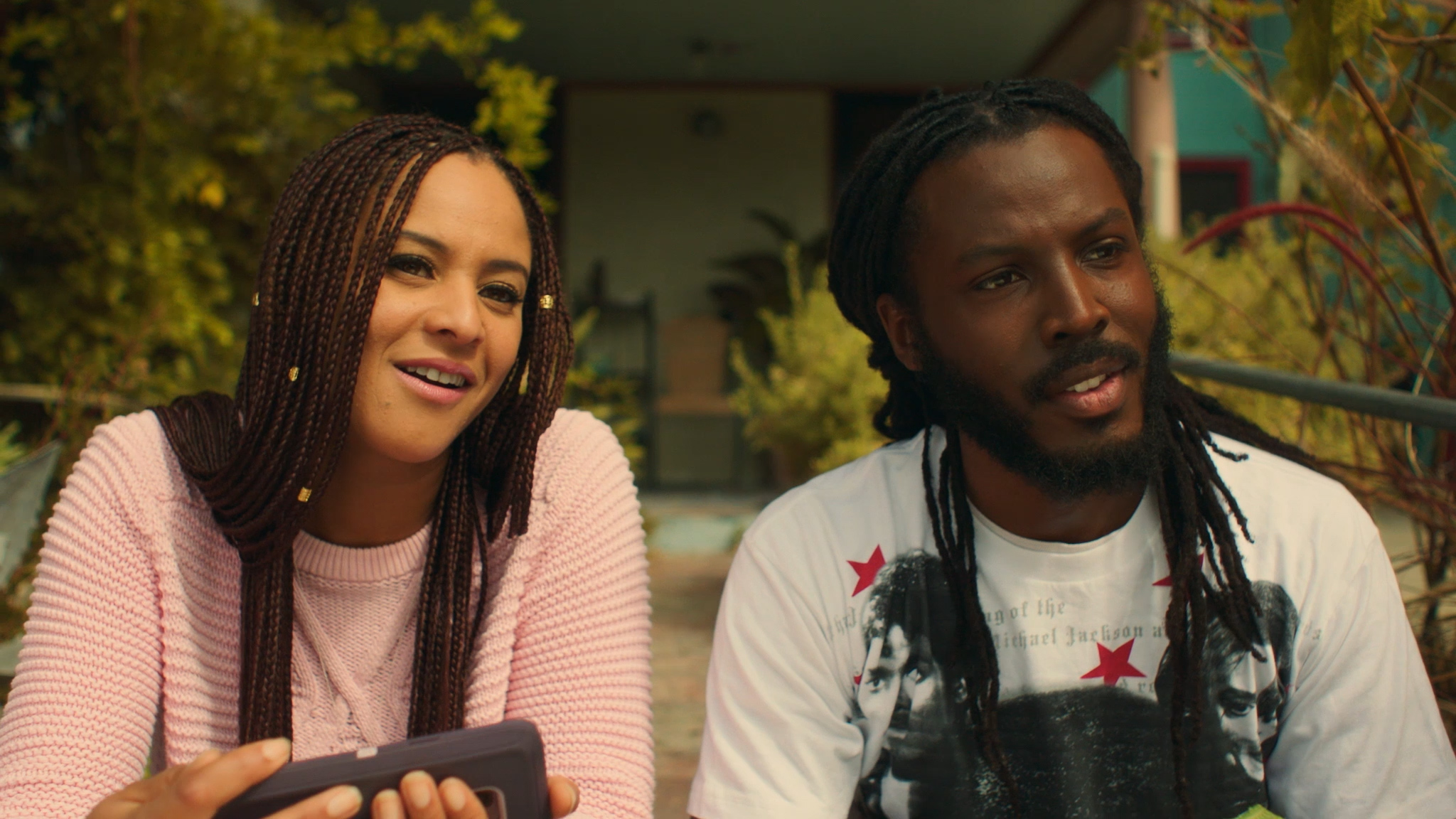In the second season of Oakland-set The North Pole, the socially conscious show focuses on tackling the anti-immigrant political climate under the Trump Administration.
Last season, The North Pole was all about the rapid wave of gentrification plaguing the Bay Area, a threat that many other cities across the country are facing. It also touched on the issue of climate change, using the example of polar bears being displaced from their natural habitat. A traumatic situation that black and brown communities are also facing: a forced migration out of the cities they have called home due to rising rents and “urban renewal.”
In the second season, Benny (Santiago Rosas) is in jail and facing deportation. Although viewers don’t get to see it, the show explains that Benny got caught up in an anti-gentrification protest led by Nina (Reyna Amaya), resulting in his arrest – a common occurrence among immigration activists without legal status who protest the injustice of our current laws.
For Rosas, playing Benny hits close to home. “I’m from Arizona and going back to 2006, 2004, there was all this anti-immigrant legislation that was passed,” Rosas explained. “I’m lucky that I was around organizers and community activists who shared with me a lot of stuff in terms of the movement and what it means.” Rosas comes from a family of immigrants, and he knew that delving deep into Benny’s back story of being a DREAMer meant he had to do it justice. “I felt my duty to try my best to be a voice for them. Do my part through my art,” he says.
While mainstream media often focuses on those coming from Mexico, it often ignores what immigrants from other countries go through when crossing the border. Not to mention the political reasons behind these families fleeing their countries of origin. The North Pole touches on that with Benny and his family being from El Salvador. “As an actor, to really become Benny, I needed to understand the history of Salvadoran resistance, the civil war, and what people had to go through,” Rosas added.

On the show, Benny meets with his attorney (Rosario Dawson) who suggests that to win his case, he has to become the face of the immigration reform movement. But Benny has yet to reveal to his friends, Nina (Reyna Amaya), Marcus (Donte Clark) and Finn (Eli Marienthal) that he is undocumented. This is a predicament shared by many undocumented folks, a real fear of the consequences of revealing something so private and life-altering. The series does an exceptional job at navigating this topic thoughtfully. The team sought the creative guidance of real undocumented people and activists. People like Faviana Rodriguez and Jesús Iñiguez, both from CultureStrike, an organization led by artists and activists of color. Undocuqueer poet and author Yosimar Reyes also served as a consultant.
That this season deals with Benny’s immigration status isn’t a coincidence, it was brought up in the writer’s room since season one, but it didn’t come to fruition due to time and budget constraints. The story itself is based on a real person, director Yvan Iturriaga’s high school friend Eddie. “He actually told us that he was Puerto Rican. It took him like ten years to come out to us his friends that he was undocumented from El Salvador,” Iturriaga says.
For Iturriaga, using the web series as a platform to talk about pressing issues that affect communities of color across the country has always been key to this project. “It’s what is happening in our communities, to people close to us,” Iturriaga says. “The cool thing that is really valuable to The North Pole is that it is all based on real people.” Iturriaga sees it as important to hav4 the writer’s room reflect the voices of their friends and family, down to the filming location, a house that belongs to one of their friends.
With the real personal story of Iturriaga’s friend Eddie, the group of friends found out he was undocumented because he got arrested. In the show, Benny has to tell his friends Nina (Reyna Amaya), Marcus (Donte Clark) and Finn (Eli Marienthal) after his release and to try and find a way to fight deportation. The show leaves the audience hanging as to how exactly Benny reveals his status but viewers get to see the outpouring of support from his friends. As well as their willingness to help Benny fight for his right to stay in his home of Oakland. They come up with a plan: to have Benny run for sheriff, the one person with authority to alter his livelihood. In real life, Iturriaga and his friends also sought an action plan to prevent Eddie from being deported. “We sprung into action and started writing letters of support to show that he was an active member of the community,” Iturriaga recalls.

Some ideas were left in the writer’s room. Iturriaga wishes the viewers would have gotten to see the moment when Benny reveals his undocumented status to his friends. “There wasn’t a heartfelt moment of them telling him [Benny], ‘Why didn’t you tell us?” Iturriaga added. “That would have been a powerful scene.
Immigration isn’t the only topic covered in the new season. Throughout the show, Finn (Eli Marienthal), a white transplant from Minnesota is confronted with his parent’s racism. This is a pressing issue that white liberals need to tackle in order to genuinely be allies to the oppressed. Simply moving to a progressive city, and getting involved in the community isn’t enough. They should be willing to call out their family members engaging in xenophobia and racism.
For the head writer, Josh Healey, incorporating the conversation around racism needed to take place in season two. “When we were writing the show, the rest of the team said: we really need Finn to confront his family,” Healey, the only white person in the writer’s room, says. “They were like Healey, that’s your job, go write your cousins. Ultimately, we all wrote it together.”
Rosas, Iturriaga, and Healey all agree that the show should serves as a platform for social issues beyond merely telling a story. “If you ignore current situations, you’re part of the problem,” Iturriaga says. “I got into filmmaking not to entertain but to use it as a tool for culture transformation — and to tell the stories of those who don’t get to tell their stories — those whose stories are dangerous for the establishment,” he adds. “Representation is important, but that’s not enough, we need to transform the culture and push the narrative in the direction that we believe in and is helpful for the world.”
The North Pole season two is available to stream on YouTube.







